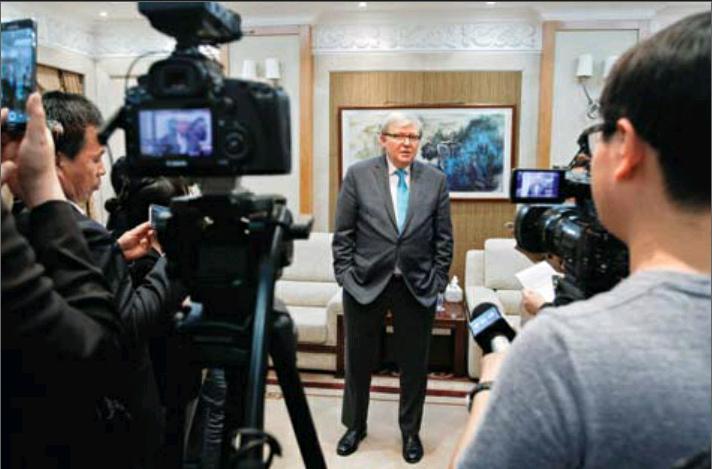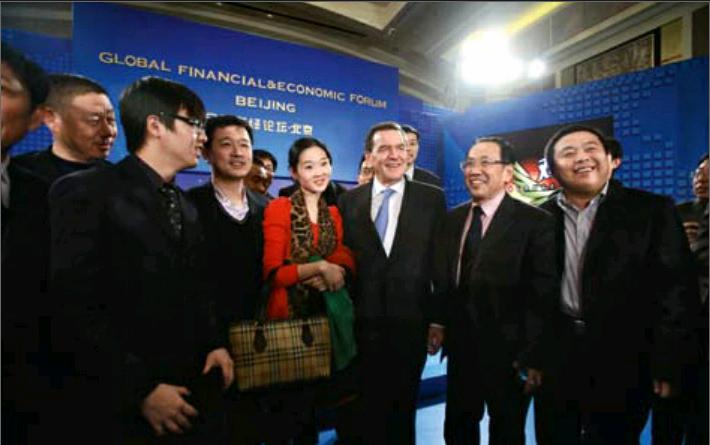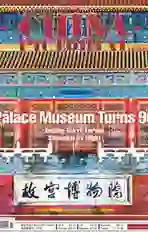Business Unusual
2015-12-11byHouJun
by+Hou+Jun


Foreign figures who used to ride the whirlwind of the political arena tend to return to normal life after retreating from glory. However, some of them are busying themselves with China-based businesses promoting “homemade” products. American media defined the politicians post-retirement career pattern as books + speeches. Some are now striving to break this pattern with new business models.
Kevin Rudd
Late July 2015 brought the opening of Lu Jiexis online store at www.tmall.hk specializing in native and maternity products from Australia.
In less than a month, the stores numbers were bright and it broke the record for sales volume of pawpaw paste with over 2,000 in a day. One of its advantages was its marketing strategy: Anyone who paid 99 yuan or more would get a chance at afternoon tea with Kevin Rudd, former Australian prime minister.
Owner Lu Jiexi, also known as Jessica Rudd, is daughter of Kevin Rudd. On the front page of her store is a photo of her with Jack Ma, one of the most influential business leaders in China. Her father, who speaks fluent Chinese, serves as a billboard for her business.
As the first Australian political heavyweight to speak fluent Mandarin, Kevin Rudd has remained a frequent visitor to China after his retirement. His most prestigious title after retirement was president of the Institute of Policy Studies under the USA Asia Society. His microblog revealed that within four days in early July, he attended two forums and a press conference and delivered two speeches.
A coordinator involved with inviting Rudd to these campaigns revealed, “It was so difficult and costly to host a former political VIP at his level.” China has the equivalent of agents to cater to the needs of such figures, who confirm their schedules months ahead and require extremely high standards for their trips, with itineraries broken down to the minute. Moreover, their appearance fees are divided into two kinds: commercial and non-commercial. For public welfare programs, they dont charge much aside from a round-trip firstclass ticket, accommodation at a 4-star hotel, and an appearance fee. For purely commercial events, they charge extremely high. For instance, a former U.S. president earned US$250,000 an hour for a speech upon an invitation from a Chinese real estate company.”
Dominique de Villepin
Like Keven Rudd, Dominique de Villepin, former prime minister of France, visited China frequently after his retirement. “I come to China almost every month,” he grins.
Villepin is a member of the global expert advisory committee for China Minsheng Investment (CMI) as well as president of the Asia-Pacific CEO Association. The committee holds at least two meetings a year to contribute ideas and strategies for CMIs global vision – perhaps one reason he is frequently seen at big events concerning the Belt and Road Initiative and forums related to Chinese stock markets.
Only recently did Arthur de Villepin, son of the former French prime minister, set off with his father on a “China gold rush.” In 2010, he jointly launched a wine business named Pont des Arts in Hong Kong with some friends. He shifted his target market from Hong Kong to the mainland as soon as he grasped the markets.
Heavily influenced by his parents since childhood, the younger de Villepin often came along when his father participated in various business events in China. “Both my parents are tightly bound to this country,”he explains. “My father likes the people here and often reminds me that these friendships can last a lifetime. My mother is an artist who adores Chinese art. She has become friends with many Chinese-born artists and masters such as Zao Wou-ki and Leoh Ming Pei. These are major factors in why Ive been interested in Chinese culture since I was small. My wine business is more than just business: Its a brand-new attempt at the integration of Chinese and Western cultures.”
Arthur de Villepin has reportedly sold more than 12,000 bottles of wine in the two years since he entered the mainland market.
Gerhard Schroeder
Since 2009, former German chancellor Gerhard Schroeder has been active in many big cooperative projects involving China and Germany.
In October 2009, Schroeder appeared in Wuhan, Hubei Province, along with Martin Herrenknecht, chairman of the Board of Management and CEO of Herrenknecht AG, a globally-renowned tunnel- ing equipment manufacturer and service provider. In 2009, seven of Herrenknechts tunneling machines facilitated construction of Wuhans subway tunnels.
In 2010, Schroeder attended the International Forum on New Energy in Qingdao, Shandong Province. A year later, he moved his business focus to Chongqing, the newest of the four municipalities under direct jurisdiction of the Central Government. During his visit there, the city witnessed increasing investment from German enterprises such as Deutsche Bank and BASF, with one reaching an MDI project worth 8 billion yuan as the largest petrochemical project German companies ever funded in central and western China.
Schroeder has become a salesman for large cooperative projects between China and Germany.
Other retired political heavyweights are also active in business with China such as former British Prime Minister Tony Blair, who is busy “matchmaking” with local Chinese governments, and former U.S. Treasury secretary Hank Paulson, who has set up a foundation and plans to write a book on how to do business in China.
As China has grown stronger economically, foreign political VIPs are working harder to shuttle between China and their home countries to optimize their connections and influence. Eyes have become fixed on these veterans, who are comfortable with protocol, and their abilities to play an active role in Chinas diplomacy and economics through mutual sharing of strength. Well, why not?
